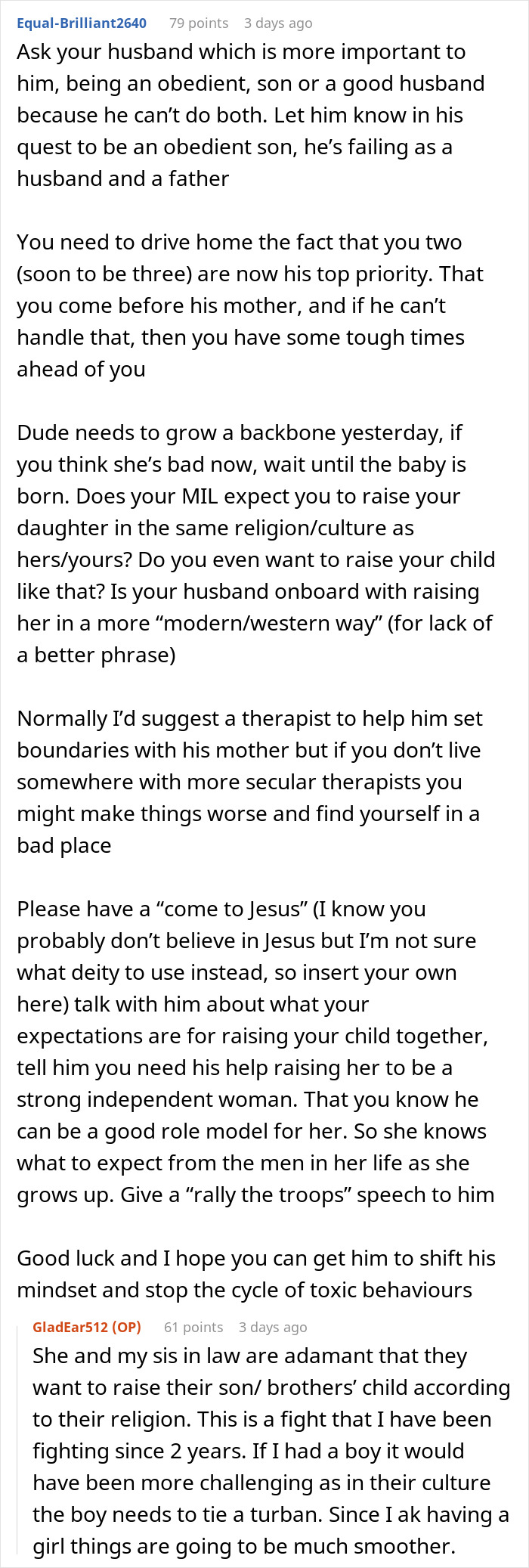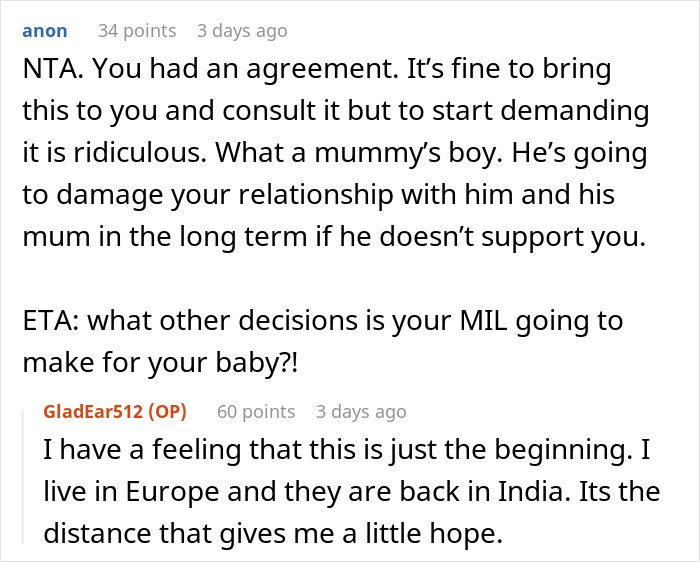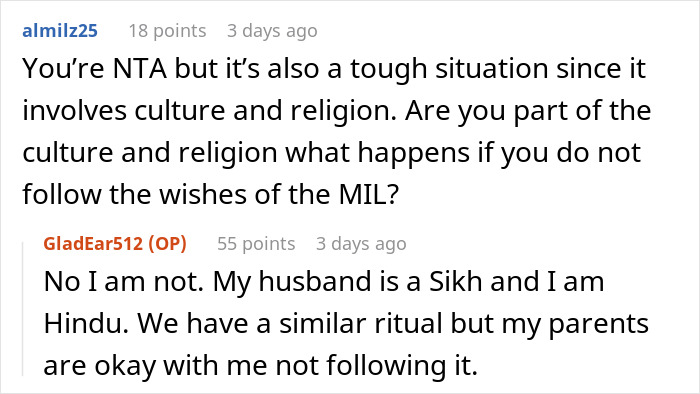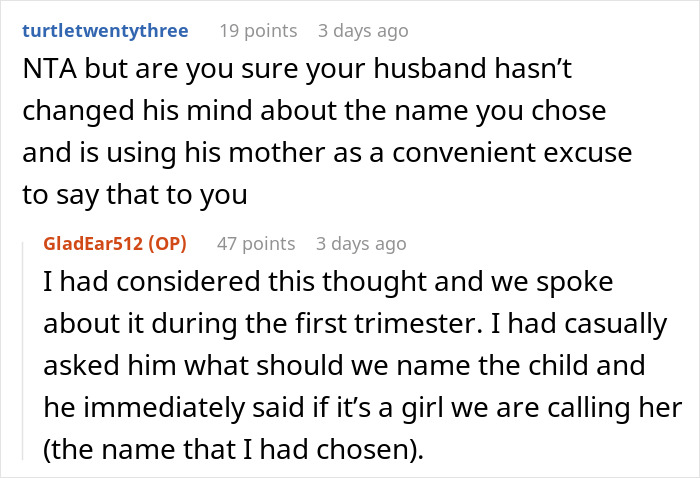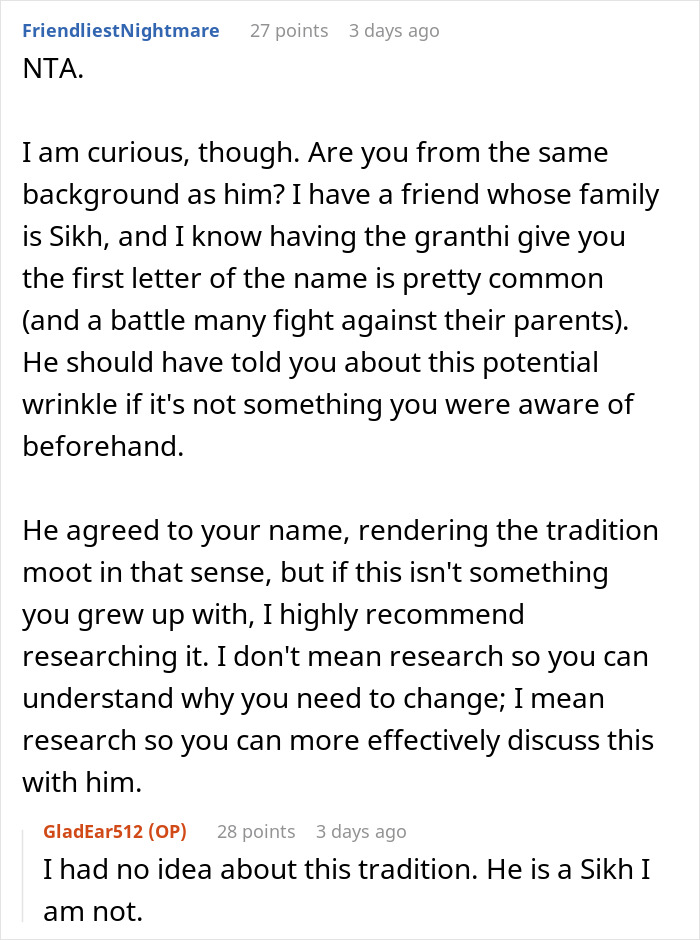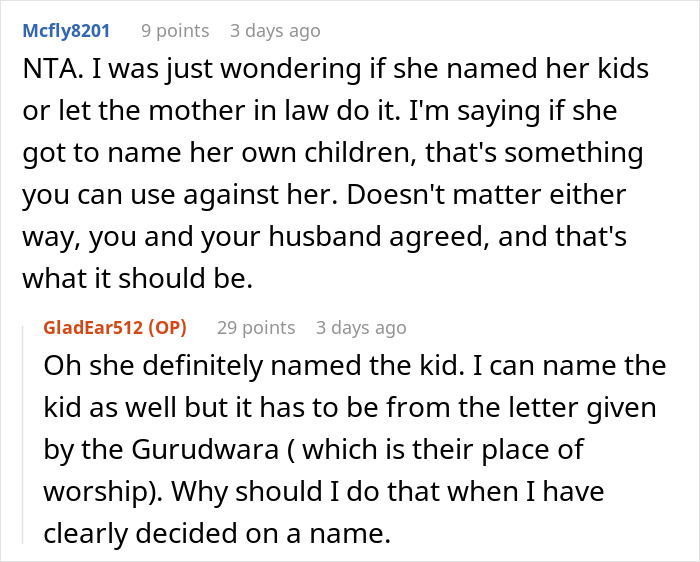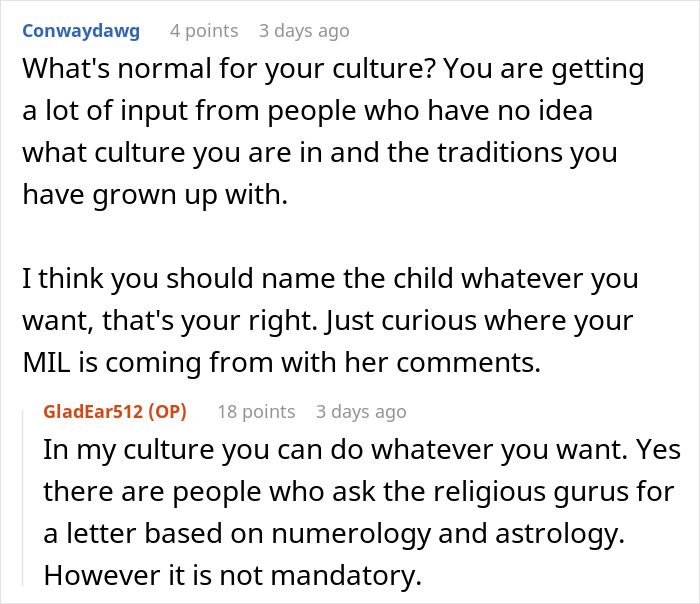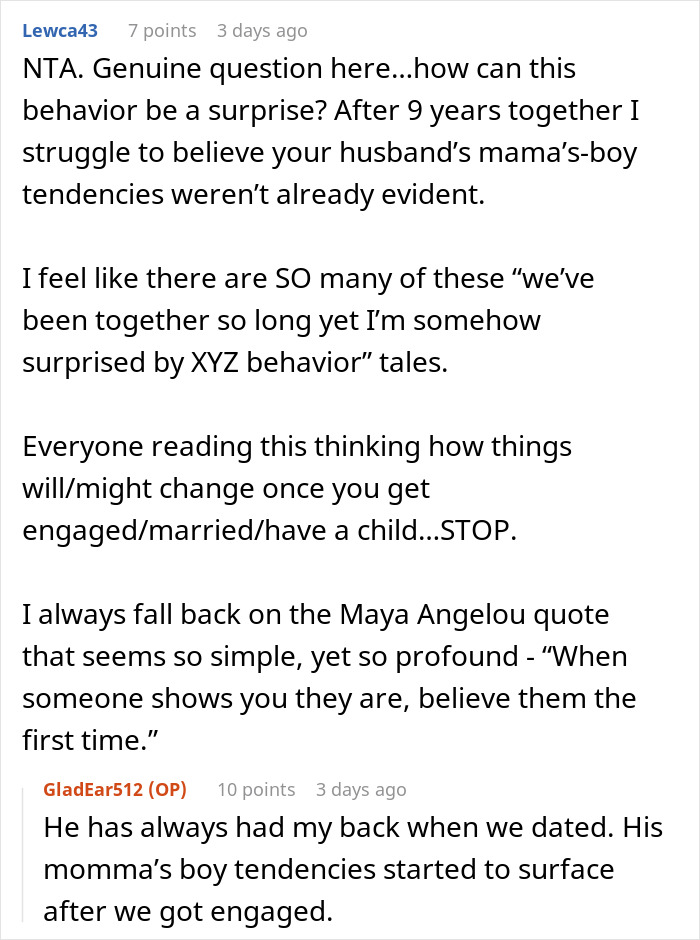Naming your baby is an important decision that will have lifelong consequences. Therefore, it’s usually not that easy, given that two people need to agree upon the name. Additionally, it can be further complicated by family traditions or opinions. It’s great if the parents can easily decide what the name should be as it’s then done and dusted.
In today’s story, initially, that was the case. However, it suddenly turned into a row as the wife’s mother-in-law decided the baby should be named by her rules.
More Info: Reddit
Naming your first child is an exciting once-in-a-lifetime event, however, even such an occasion can turn sour

Image credits: Holiak (not the actual photo)
A woman recently approached Reddit to ask whether she’s right in a dispute with her husband over naming their first child

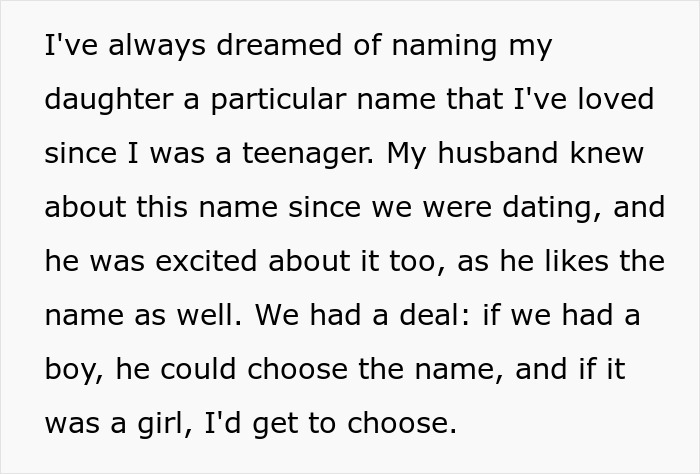

Image credits: prostooleh (not the actual photo)
The spouses had an agreement way before expecting their first child, that according to the gender of the newborn, the respective parent would name the child
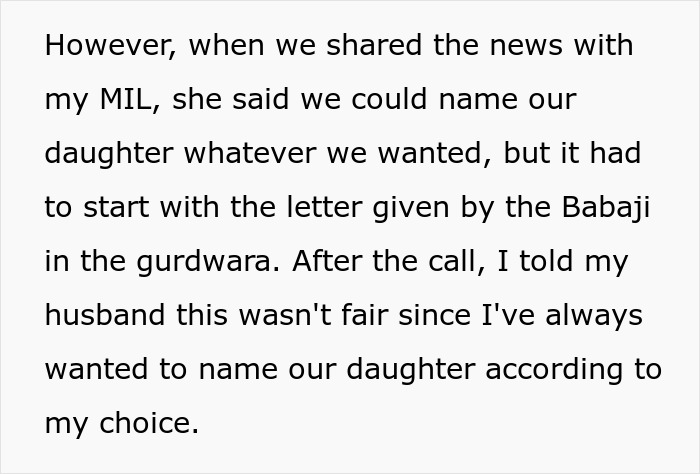


Image credits: juliane sanchez (not the actual photo)
However, this agreement went out of the window when the wife’s mother-in-law interfered
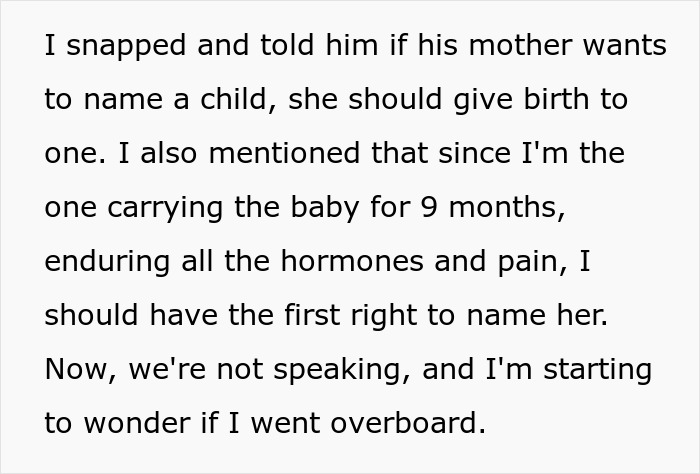

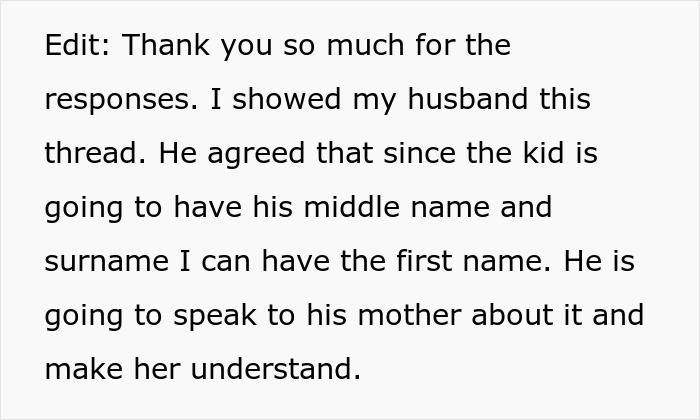
Image credits: GladEar512
The MIL insisted that the newborn should be named according to family tradition, and the husband agreed with her, causing a dispute with his wife as she refused to comply
Recently, a woman approached Reddit’s r/AITA community to ask for perspective, as she was unsure if a recent row made her a jerk. For context, the woman and her husband had an agreement way before she was pregnant with their first child.
They agreed that if the baby was a boy, the husband would name him, and vice versa if it was a daughter. As they discovered that they were going to have a daughter, the mother already knew what name she’d give the baby.
The husband knew the name as well, as the woman told him long before they even planned children. Of course, the mother thought nothing of it, as she was sure there would be no issues giving her daughter the name she had liked for so many years.
Unfortunately, this turned out not to be the case. As of now, the woman is in the 5th month of the pregnancy. A few days ago, the husband had a chat with his mother, and she told him that the baby should be named according to family tradition, and her name should start with a specific letter.
Even though the spouses had an agreement, the husband unexpectedly made a 180-degree turn and agreed with his mother instead. He reasoned that “she should have a chance to name our child as she would like it.” Unsurprisingly, the woman snapped at him, insisting that she was the one carrying the baby.
With all the pain and hormones, she should have the right to name her daughter. However, the woman is unsure if she went overboard, as they’re not speaking anymore, thus she decided to ask for advice on Reddit.
Fortunately, later the OP (Original Poster) shared more information on Reddit, saying that she and her husband came to an agreement and that she was right. He’s going to talk with his mother and sort the conflict out.
Netizens agreed that the woman didn’t overreact, as she had a deal with her husband that he didn’t honor. But the story covered today is only one example of how deciding on the name of a child can be a struggle. Let’s explore the root cause of this difficulty.

Image credits: Heiner (not the actual photo)
To begin with, we can ask ourselves two quite philosophical questions: “Do names carry power?” and “Do names have a deep meaning?”. While it is common knowledge that names originate from surroundings and nature, we rarely delve deeper into why human names have such a strong emphasis, as opposed to inanimate objects.
To name something is to show a direct influence on the subject, whether it’s a creation of some sort or even your child. Naming is your mark in the world. Therefore, granting a name can be challenging. It’s a responsibility after all, as everybody else is going to be referring to the subject you named for the rest of their days as it gives it individuality.
Having all of this in mind, most likely you’d like to choose a name that has sentimental value to you, or meaning. Quite a lot of names that we use daily have religious roots which popularized them, or are derivatives of our nature or occupation.
For example, a common Japanese name, “Hinata”, directly translates to “sunflower; facing the sun”, which is a rather poetic way to refer to someone. In the Western world, a good instance is “Adam” which translates to “Son of the Red Earth”, popularized by the Bible.
Now that we have established that names indeed originate with a set innate meaning, at least the common ones, it is plausible to ask whether names can truly have meaning. One could argue that beyond an aesthetic zing to it, a name means nothing at all.
To elaborate, a name loses its uniqueness when there’s more than one referent to it. The name Alice refers to a specific woman you may know, but at the same time, it relates to every single woman with the same name. It doesn’t tell anything about a particular woman exclusively, such as what’s her personality, but lets us know that it’s a specific human.
On the other hand, names that have deep historical roots or are archetypical can still have connotations behind them. Even if thousands of people have it. If a woman you’re not familiar with told you her name is “Alice”, a popular reference might pop up in your head such as “Alice in Wonderland”.
In summary, it seems that names do carry meaning within them, although over-usage of them can dilute their uniqueness. What do you think about the husband’s stance? Did you have a hard time naming your child? Let us know in the comments below.
Netizens show support for the woman, saying that she did not overreact
